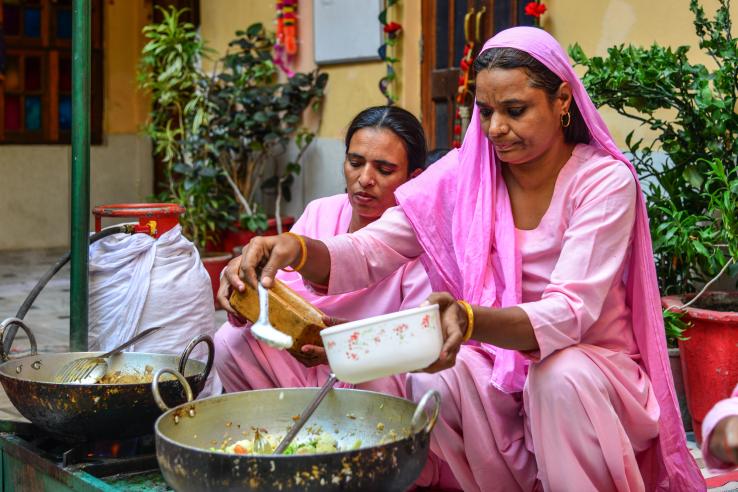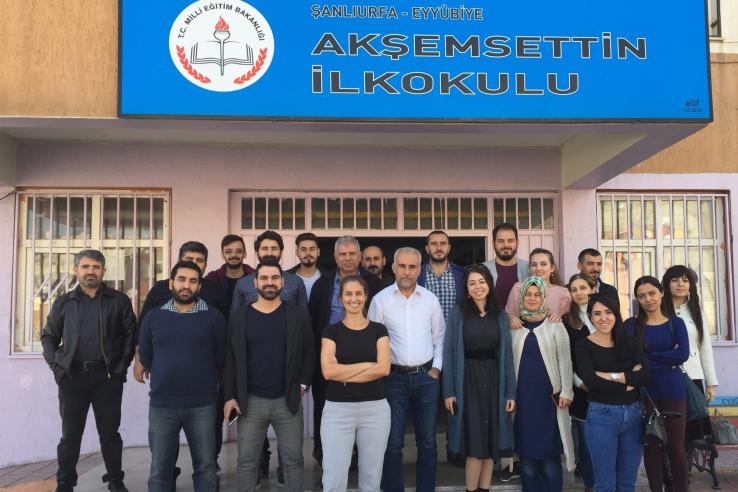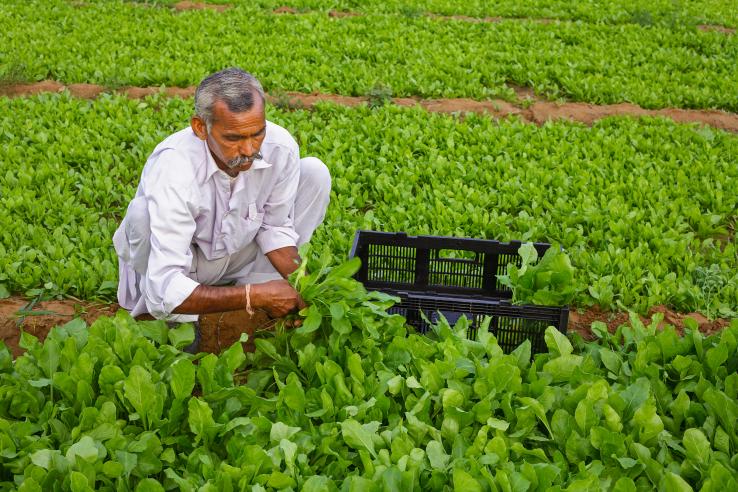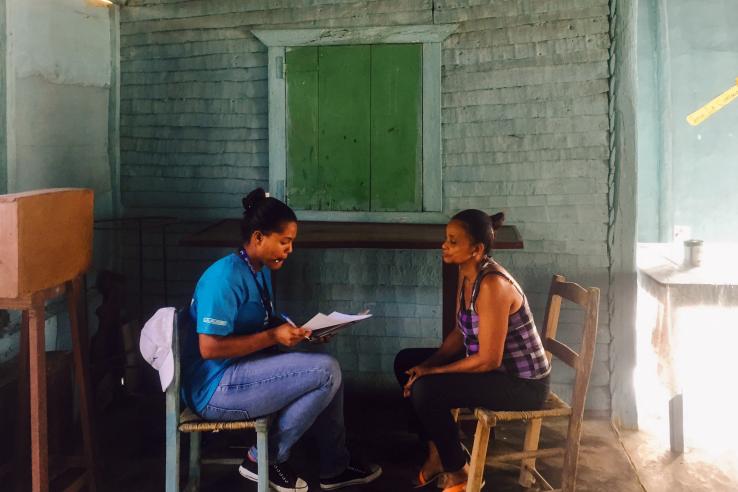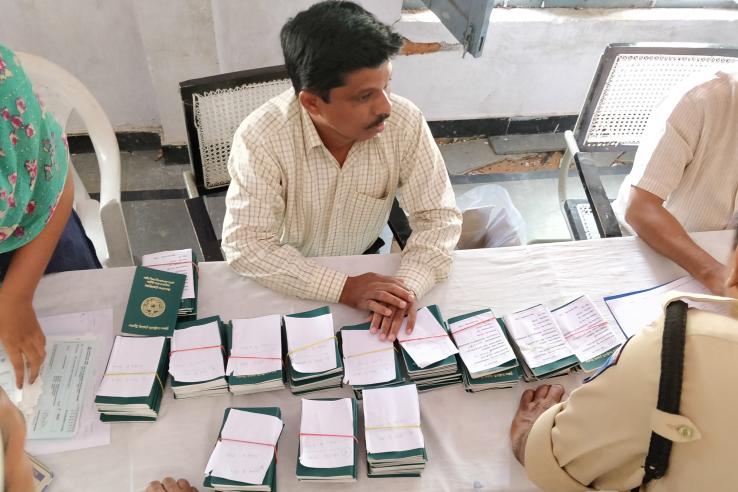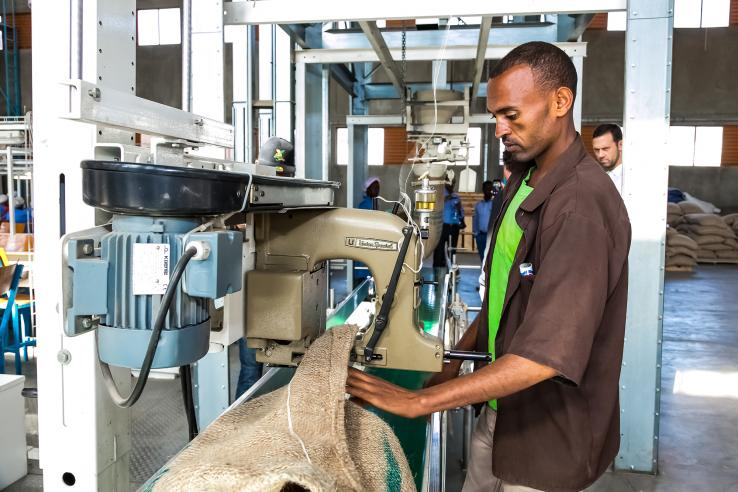Displaying 2386 - 2400 of 8330
Evaluation
Saving money and borrowing money are often thought of as two very different financial behaviors. However, in many low- and middle-income countries people may use these products for the same reasons. The National Rural Support Programme in Pakistan and researchers randomly offered female microfinance customers a commitment savings product or a credit product three times over the course of three weeks to test how the design of the financial product impacted take-up. They found that many women had an interest in making a large lump-sum purchase or investment, but simultaneously struggled to save. More than half of women used both a savings product and a credit product over the course of the three weeks, suggesting the two are used interchangeably.
Evaluation
Researchers evaluated the impact of simplified award letters and different framing and messaging on students’ decision-making in their college selection process and uptake of financial aid. Researchers found that notification letters containing simplified and behaviorally informed language increased Cal Grant account registration but had no impact on eventual take-up of financial aid. Letters that included individualized net cost calculations as well as psychological nudges were found to slightly increase enrollment at community colleges.
Evaluation
Researchers partnered with the Ministry of Education in Turkey to conduct a randomized evaluation of Understanding Each Other, a program which aims to foster social cohesion through perspective-taking activities that encourage students to consider others’ perspectives. They found that the program improved students’ perspective-taking abilities, encouraged students to be more inclusive, and reduced peer violence.
Evaluation
The Government of Telangana is partnering with researchers to determine the impact of restoring water tanks for irrigation on water management, agricultural output, and farmers’ income.
Evaluation
Researchers are evaluating the impact of a conditional cash transfer and community worker program on beneficiary wellbeing.
Evaluation
Researchers conducted a randomized evaluation to test the impact of a cell phone-based monitoring system on the delivery of government-issued payments for farmers in Telangana, India. The system significantly improved the likelihood of farmers ever receiving their payments as well as receiving them on time, indicating improved performance by on-the-ground service providers in delivering payments to farmers.
Blog
Alicia Sasser Modestino is affiliate and an associate professor of public policy and urban affairs and economics at Northeastern University. Modestino also serves as the Director of Research at Northeastern University’s Dukakis Center for Urban and Regional Policy.
Evaluation
Researchers evaluated the impact of mixed Christian-Muslim soccer teams on social cohesion and interactions between these groups in an ISIS-affected area of Iraq. Christians who played on mixed teams demonstrated a higher likelihood of engaging with Muslim teammates after the league ended, but the intervention did not improve their overall tolerance toward the Muslim community.
Person
Abu Shonchoy is an Associate Professor of Economics at Florida International University. His research interests concentrate around financial inclusion, skills training, infrastructure, and education, with several ongoing evaluations in South Asia and West Africa. In addition to his academic work...
Person
Abhijeet Singh is an Associate Professor of Economics at the Stockholm School of Economics. His research focuses on topics relating to the economics of education, child nutrition, and public service delivery in low- and middle-income countries.
Blog
Learn how J-PAL staff have come together to build a vibrant virtual community in face of the COVID-19 pandemic.
Evaluation
Researchers conducted a randomized evaluation of job fairs in Addis Ababa, Ethiopia, to test the effect of face-to-face interactions between formal firms and job seekers on workers’ chances of getting a job.
Person
James Sullivan is a Professor of Economics at the University of Notre Dame. His research examines the effectiveness of anti-poverty programs at the national, state, and local levels. He also studies the consumption, saving, and borrowing behavior of poor households, and how welfare and tax policy...
Person
Lore Vandewalle is a Professor of Economics at KU Leuven and a Professor at the Graduate Institute of International and Development Studies in Geneva. Lore Vandewalle is an applied micro-economist, specialized in development and political economics. Her research mainly focuses on financial inclusion...
